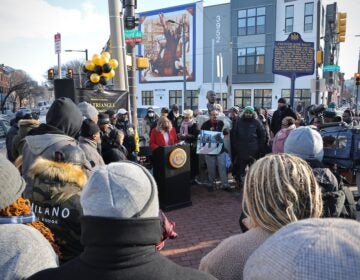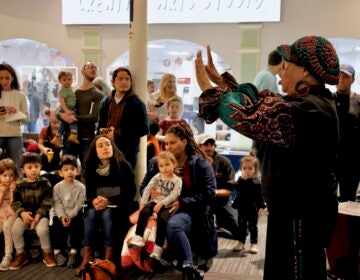Fifty years after King speech, John Lewis honors his mentor at St. Joe’s
Lewis, the longtime civil rights activist, spoke as part of a year-long series commemorating Martin Luther King's 1967 address at St. Joe's.
-
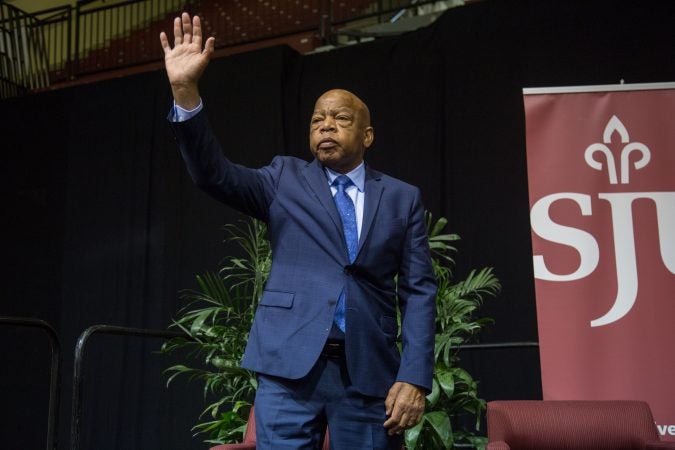
U.S. Rep. John Lewis thanks the crowd gathered at St. Joseph's University on April 16, 2018 to commemorate the 50th anniversary of Martin Luther King, Jr.'s death. (Emily Cohen/for WHYY)
-
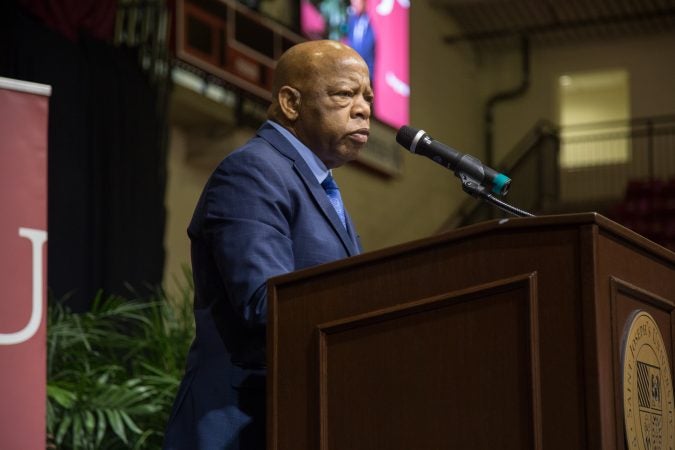
U.S. Rep. John Lewis addresses the crowd gathered at St. Joseph's University on April 16, 2018 to commemorate the 50th anniversary of Martin Luther King, Jr.'s death. (Emily Cohen/for WHYY)
-
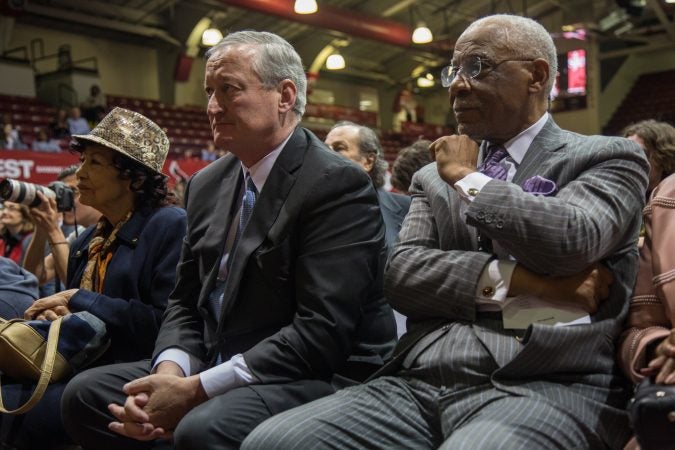
Philadelphia Mayor Jim Kenney sits next to former Mayor Wilson Goode, as they listen to U.S. Rep. John Lewis talk about his life as a civil rights activist, which began alongside Martin Luther King, Jr. (Emily Cohen/for WHYY)
-
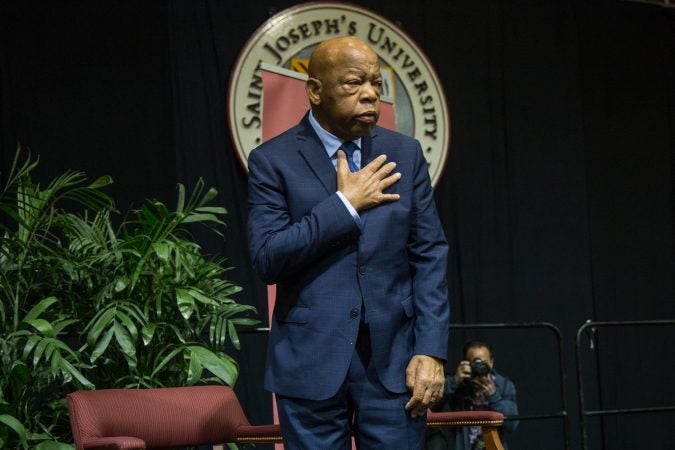
U.S. Rep. John Lewis thanks the crowd gathered at St. Joseph's University on April 16th 2018 to commemorate the 50th anniversary of Martin Luther King, Jr.'s death. (Emily Cohen/for WHYY)
-
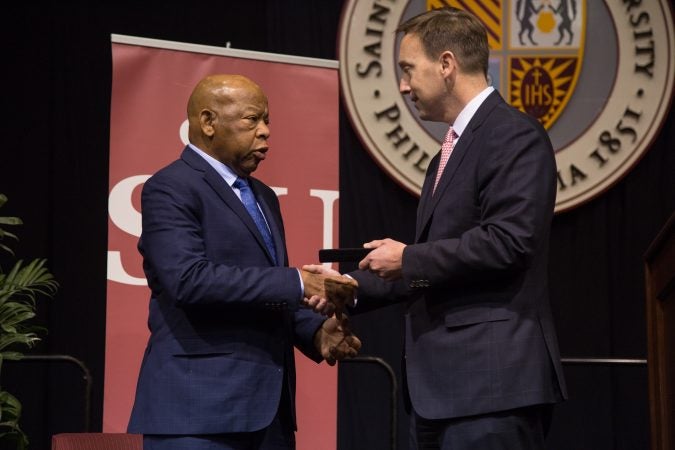
St. Joe's president, Mark C. Reed, presents U.S. Rep. John Lewis with the President's Medal of Excellence on April 16, 2018. (Emily Cohen/for WHYY)
When Martin Luther King, Jr. spoke at St. Joseph’s University in October of 1967, he framed the early victories of the Civil Rights movement as preludes to a more difficult struggle.
“I submit to you that it is easier to integrate lunch counters than it is to eradicate slums,” he told the audience of 3,400 crowded into the school’s old fieldhouse. “It is easier to guarantee the right to vote than it is to create jobs or to guarantee an annual income.”
John Lewis, then one of King’s chief lieutenants, helped integrate those lunch counters and secure those voting rights. And it was he who capped off a year-long celebration of the 50th anniversary of King’s West Philadelphia visit by delivering his own speech Monday at St. Joe’s.
“He gave us courage to stand up, to be brave, to be courageous, to be bold,” Lewis said of King. “He helped liberate America.”
Lewis has become a front-page civil rights name in his own right. He helped organize freedom rides and major rallies like the famed March on Washington. For the last three decades, he’s been a congressman representing Georgia’s 5th District.
But his journey started in the 1950s as an Alabama farm boy so inspired by King that he wrote the reverend a letter. From there, Lewis began organizing sit-ins at segregated lunch counters, the same ones King would allude to at St. Joe’s in 1967.
And in 2018, in Philadelphia, controversy over the treatment of black men in eateries persists. On Thursday, police arrested two black men at a Center City Starbucks as they waited for a friend. The case has prompted protests and cries of racial profiling, and Mayor Jim Kenney, seated in the audience for Lewis’ speech, acknowledged the connection between the recent event the Jim Crow South of yore.
“It’s kind of interesting listening to John Lewis today about what he went through and that in segments of our society that still goes on today,” Kenney said, responding to a question about the Starbucks incident.
Lewis did not mention the Starbucks arrests or dwell on the lack of progress. His speech instead focused on his life, how it intersected with King’s, and how those years changed America’s trajectory.
“If it hadn’t been for Martin Luther King, Jr., I don’t know what would have happened to our country,” Lewis said.
Outside a couple of cracks about his congressional colleagues, Lewis largely avoided explicit political references. He focused more on King’s message, and the imperative to pick up where his mentor left off.
“My philosophy is very simple,” he said. “When you see something that is not right, not fair, not just, you have a moral obligation to stand up, to say something, to do something, and not be quiet.”
WHYY is your source for fact-based, in-depth journalism and information. As a nonprofit organization, we rely on financial support from readers like you. Please give today.




